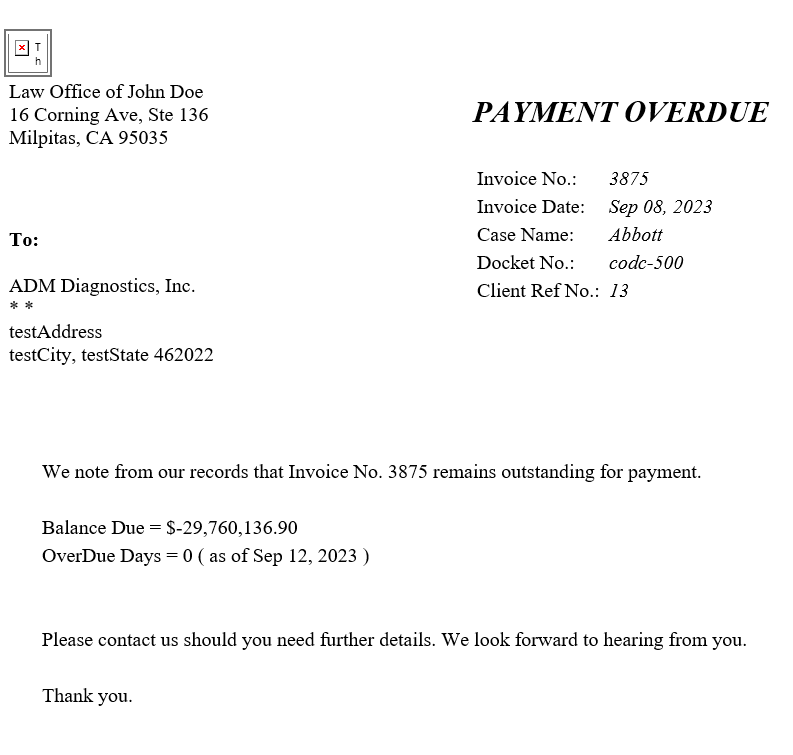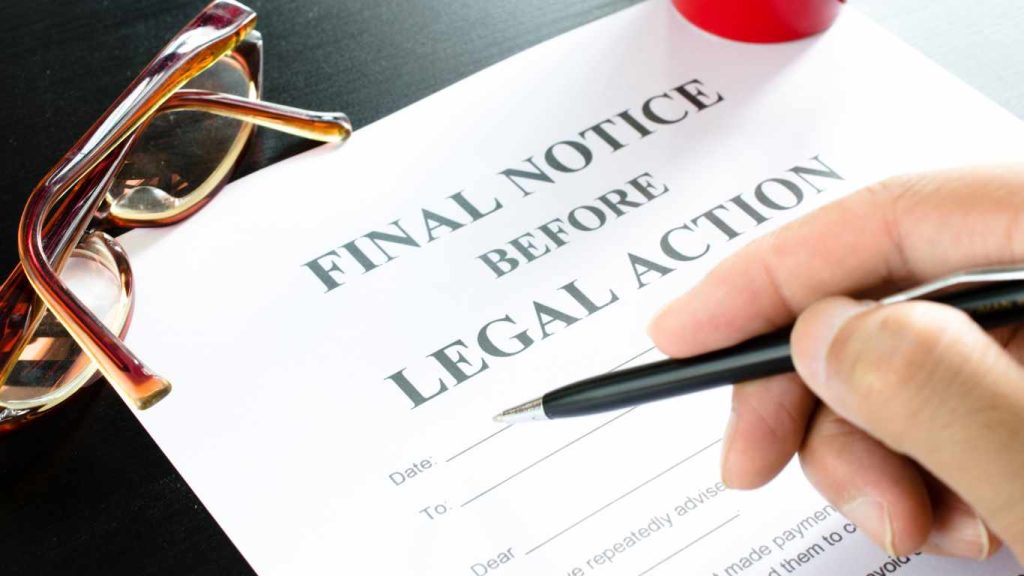When it comes to getting paid, lawyers have to hope for the best and be prepared for the worst. If you are a lawyer, you may have met a client who gets fuzzy when it comes to making payments. Some clients may delay their payments while others may try to avoid paying for the legal services they received. As a lawyer, you will have to deal with all different types of clients. In this blog, we will discuss a few ways in which you can deal with clients that don’t pay.
How To Deal With Clients When They Don’t Pay
Getting paid on time is essential for maintaining a healthy cash flow, but if your clients aren’t paying, you. Here is what you can do.
1. Send a Written Reminder To Your Client
If you haven’t received payment from the client, the first step is to send a written reminder to your clients. Resend your legal fees invoice to your client with a message that you haven’t received your payment. You can simply message your client asking, “Did you forget to make your payment?” Your payment is due.

You can also give your client a little more time to make the payment. Although you don’t have any obligations to give your client additional time to make a payment. But if you are dealing with a large company that needs more time to process the payment. You can set a reminder and set a due date for it. For instance, you can add an additional payment time of a week or two. But if you don’t get paid within the set time frame, it’s time to move on to the next step.
2. Send a Debt Collection Letter
If, after sending a written reminder to your client, you don’t receive your payment. It is time to send a debt collection letter. This is a more formal letter than just a written reminder.

The debit collection letter that you send to the concerned client must include the following:
- The due date of payment
- Mention the timeframe for sending payment
- The method of payment in which you accept payment
- Also, mention the action that you will take if you don’t receive the payment in the given period.
You can mention something like “to avoid any further action” or a civil lawsuit. Please ensure you make a payment within the given time.
3. Make Personal Contact With the Client
Now if you don’t receive the payment even after a written reminder and debit letter. It is time to get in touch with the client personally. You can call your client or have a face-to-face meeting with your client. Try to have a clear conversation with your client on the issue and negotiate a resolution for the same. If it’s a company or a business, you can first connect with their accounts department. If that is of no use, you can move on to someone more responsible. Talk to the president of the company or the owner of the business.

Ask questions about the delayed payments or what are the issues that the client is facing regarding the payment situation. You can also remind your client about the payment agreement and terms that everyone agreed to.
If the reason is the company’s oversight, getting attention from someone in a higher position will resolve your issue. But if the company is going through any financial crisis, you will have to set up a payment plan. You can also accept some amount of payment that you are getting. It is good to resolve the situation rather than extending it.
4. Send a Final Demand Letter
If, after taking all these steps, you still don’t get your deserving payment. It is time to send a final demand letter before you file a lawsuit. A demand letter is somewhat similar to the debit collection letter that we have talked about above. But the final demand letter clearly states that if you don’t receive your payment, you are going to sue.

If you want, you can hire an attorney to write a demand letter for you. No matter who is writing the demand letter, the content usually stays the same. But when a demand letter is written by an attorney, it is more worthy and usually gets attention from clients. The cost of writing an attorney’s letter is usually low.
5. Take Legal Action
If you want to take fast legal action, you can simply move on to the small claim court. You will simply create a straightforward case. Where you can claim that the other party has breached the written payment agreement by not paying you. You can have the judge to provide the judgment for the entire amount you owe.
Then, if you still don’t get payment from the client. You can involve the collection agency and hand the judgment over to them. If you are filing a case in small claim court. And your client doesn’t show up for the hearing, you will win the claim by default.
6. Use a Collection Agency to Get Paid
Filling a lawsuit in court is a good idea if you want to get all your money from the client. But if you are ready to settle with the partial amount that you may want to consider a collection agency. Collection agencies usually handle matters in a not-so-subtle way. These agencies contact the debtor and exert pressure on them to make payments. The agency will put pressure on the client that if the payment doesn’t get clear. They obtain a judgment for the entire amount.
Collection agencies work on a contingency basis. These collection agencies usually collect 20% to 80% of the amount that you owe and their charges depend on that. Generally, collection agencies charge 10% to 50% of the amount that they collect. For a small amount of debt, they charge more recovery fees.
When To Give Up?
You have to accept that you can’t always get money from your client. In certain situations, you might have to give up. If your client goes bankrupt or out of business. Taking action against them will be useless after this, so without wasting time you should give up on the client. You can simply reflect that as a bad debt in your tax return.
If your client has filed for bankruptcy. You will have a chance to file a claim with the bankruptcy court with whatever that client owes you.
The Bottom Line
As a lawyer, it can get uncomfortable and disappointing to not receive payment from the client. With some clients and in certain cases, this situation can be resolved with a gentle reminder to the client. But in other situations, it may be necessary to take some serious. actions. We have mentioned some of the ways in which you can take actions against the clients that don’t pay.
No, it is not that common for legal clients to delay or refuse payment. But in some cases clients may do so when they are facing some financial difficulties. Delay in payment can also be possible due to dissatisfaction with your service or disputes over billing details.
There are few ways in which you can prevent the issues of non-payment. For instance to prevent non-payment issues, establish clear payment terms and expectations in your client engagement agreements. Regularly communicate with clients about billing, provide detailed invoices, and offer flexible payment options when possible.
Yes, you should clearly define payment terms, interest rates on overdue balance and the consequences of non-payment. You should also include the provision of disputes for payment and resolution for the same.

